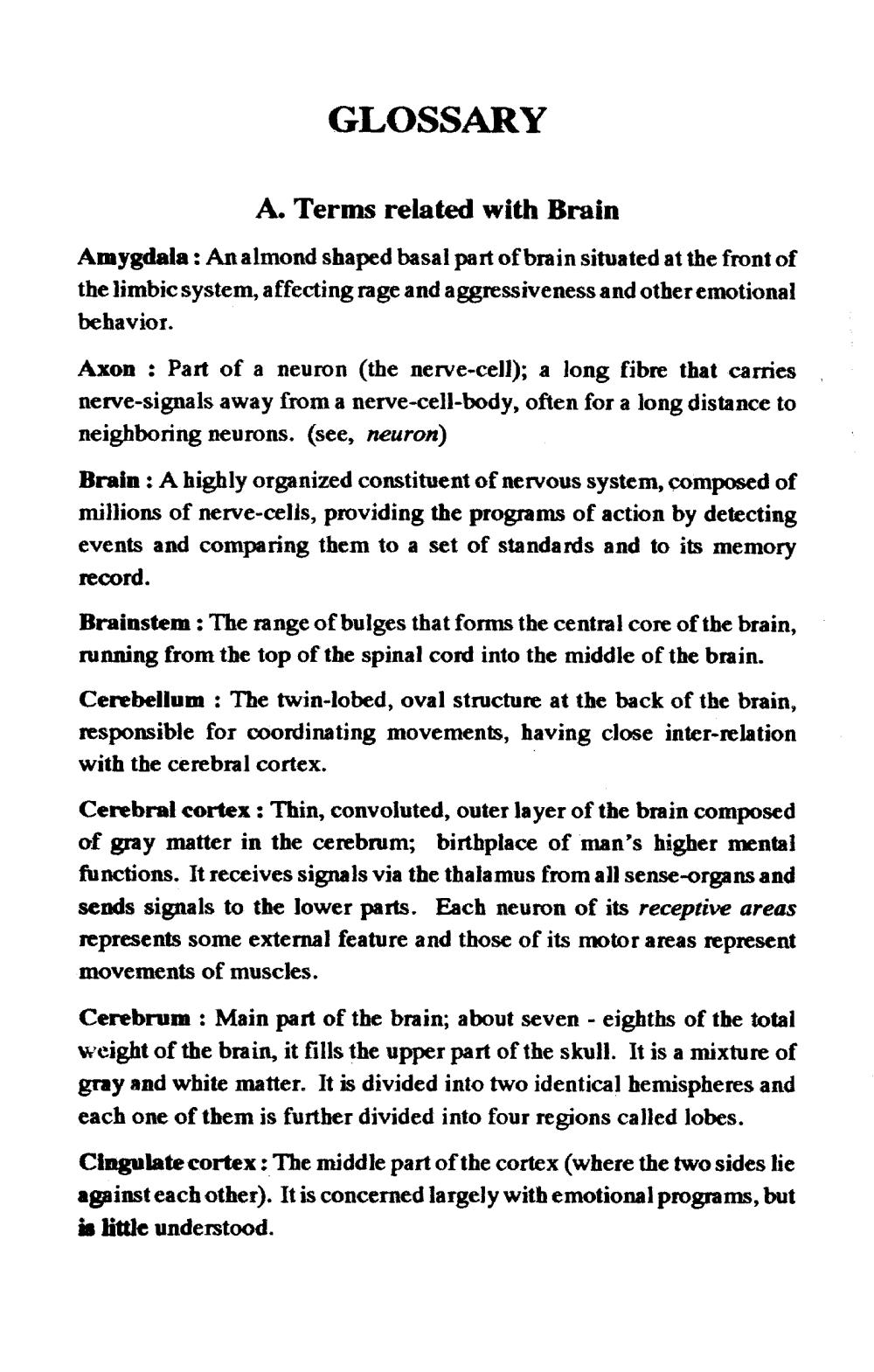________________
GLOSSARY
A. Terms related with Brain Amygdala : An almond shaped basal part of brain situated at the front of the limbic system, affecting rage and aggressiveness and other emotional behavior. Axon : Part of a neuron (the nerve-cell); a long fibre that carries nerve-signals away from a nerve-cell-body, often for a long distance to neighboring neurons. (see, neuron) Brain : A highly organized constituent of nervous system, composed of millions of nerve-cells, providing the programs of action by detecting events and comparing them to a set of standards and to its memory record.
Brainstem : The range of bulges that forms the central core of the brain, running from the top of the spinal cord into the middle of the brain.
Cerebellum : The twin-lobed, oval structure at the back of the brain, responsible for coordinating movements, having close inter-relation with the cerebral cortex.
Cerebral cortex : Thin, convoluted, outer layer of the brain composed of gray matter in the cerebrum; birthplace of man's higher mental functions. It receives signals via the thalamus from all sense-organs and sends signals to the lower parts. Each neuron of its receptive areas represents some external feature and those of its motor areas represent movements of muscles. Cerebrum : Main part of the brain; about seven - eighths of the total weight of the brain, it fills the upper part of the skull. It is a mixture of gray and white matter. It is divided into two identical hemispheres and each one of them is further divided into four regions called lobes. Cingulate cortex: The middle part of the cortex (where the two sides lie against each other). It is concerned largely with emotional programs, but is little understood.




